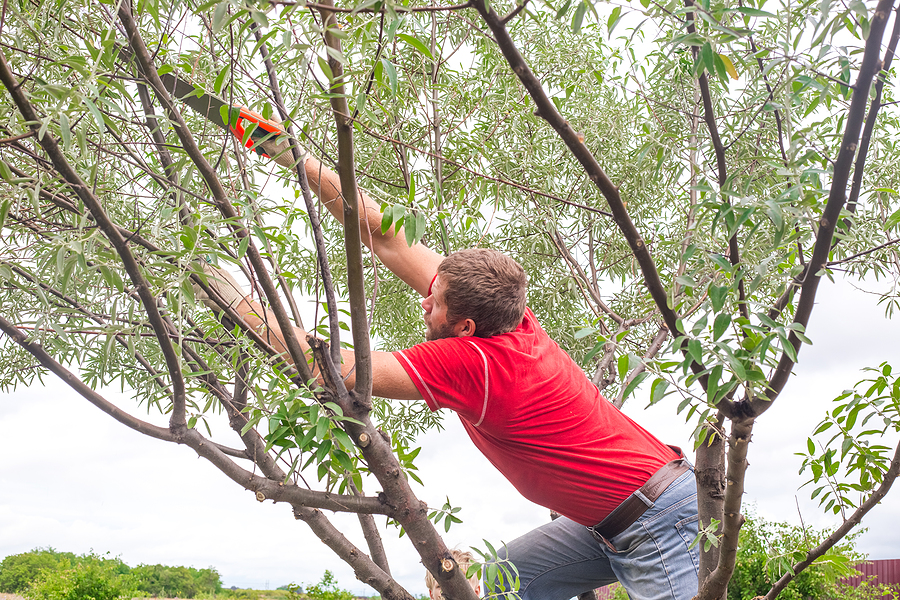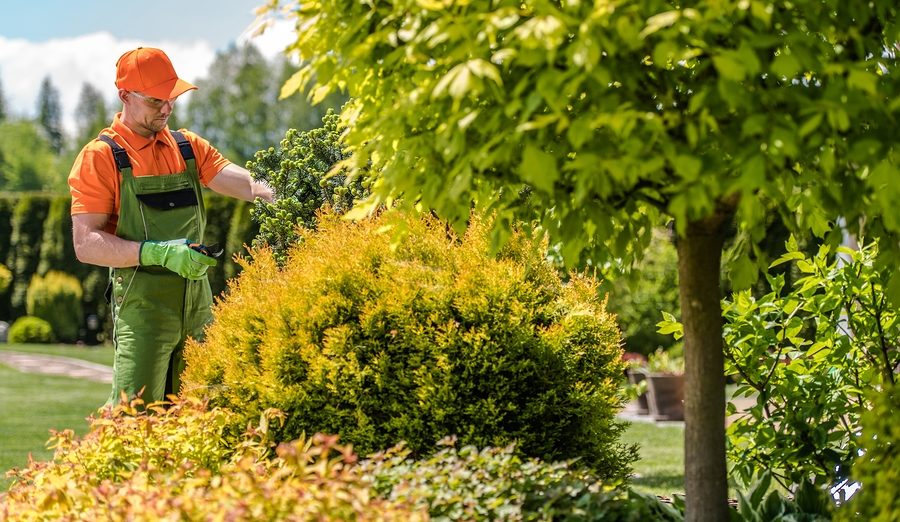Pruning trees is an important part of tree care. It can help to keep your trees healthy and vibrant, as well as improve their overall appearance. However, it’s not enough to just start snipping away at branches – you need to understand the science behind pruning in order to get the most health benefits from your efforts.
In this blog post, we’ll discuss when and where to cut for maximum results so that you can ensure that your pruning services are effective and beneficial for your trees.

Types of Tree Pruning Techniques
First, it’s important to understand the different types of pruning and when each one should be used. Light pruning can be done all year round; however, major pruning should generally only be done in late winter or early spring when trees are dormant. When making cuts, it’s essential to remember that you want to encourage growth on the tree rather than decrease it.
To this end, cuts should be made at an angle just above a bud or branch node – this will promote new stem growth from the cut point. Additionally, you should also keep an eye out for dead branches or ones that have been damaged by disease or pests – these can be safely removed without harming the overall health of your tree.
ANSI Tree Pruning Standards
Following ANSI tree pruning standards helps to prevent damage done to a tree and establishes better care practices in the arborist field of work. Tree pruning is a necessary step in a tree’s life, but it needs to be done correctly. ANSI standards are published regularly and serve as guides for professionals dedicated to their craft.
Each year more rules are released, and it is essential for workers in this field to review and be aware of the latest regulations in the industry. Not following them could be hazardous for both the tree and its environment, making knowledge of current standards even more imperative. All in all, practicing good tree care starts with understanding what these regulations entail.
Where to Prune Tree Branches
Another important factor to consider when pruning is where you should make your cuts. Never cut too close to the trunk of the tree – instead, you want to leave a small “collar” around the base of each branch so that it can heal properly after being cut. This collar also provides protection from disease and pests so that your tree can remain strong and healthy. Additionally, try to avoid cutting more than one-third of the live crown at once – this is because if too much foliage is removed, your tree may go into shock and become susceptible to diseases or pests.
When to Do Your Pruning
Tree pruning is a delicate process that should only be conducted during a specific period of time. Although trees can survive without periodic trimming, it is important to keep up with neglecting to prune them as they mature. Properly timing the tree pruning will benefit your tree and help it grow healthily into the future. Depending on the species, trees should receive proper care at different times throughout the year. Regular maintenance helps keep any dead or dying limbs from becoming too unmanageable for removal. It also aids in providing lots of sunlight and air circulation while minimizing hazards surrounding your home or business property. With planning and precision, you and your trees can thrive together well into the future!
In Summary
By understanding the science behind pruning and taking care with where and when you make cuts, you can ensure that your trees are receiving all of the health benefits that come with pruning. With proper care and attention, your trees will stay vibrant and beautiful for years to come!
Would you rather have an experienced professional handle the pruning of your landscaping trees? Contact Timberland Tree Care at 317-348-0811 for licensed and insured tree trimming and pruning services in Indianapolis, Indiana. We serve residential and commercial customers.
Related Posts:
The Best Time of Year to Trim and Prune Trees
Can I Prune My Tree in June?
Check Out These Photos From a Recent Tree Pruning Job!


